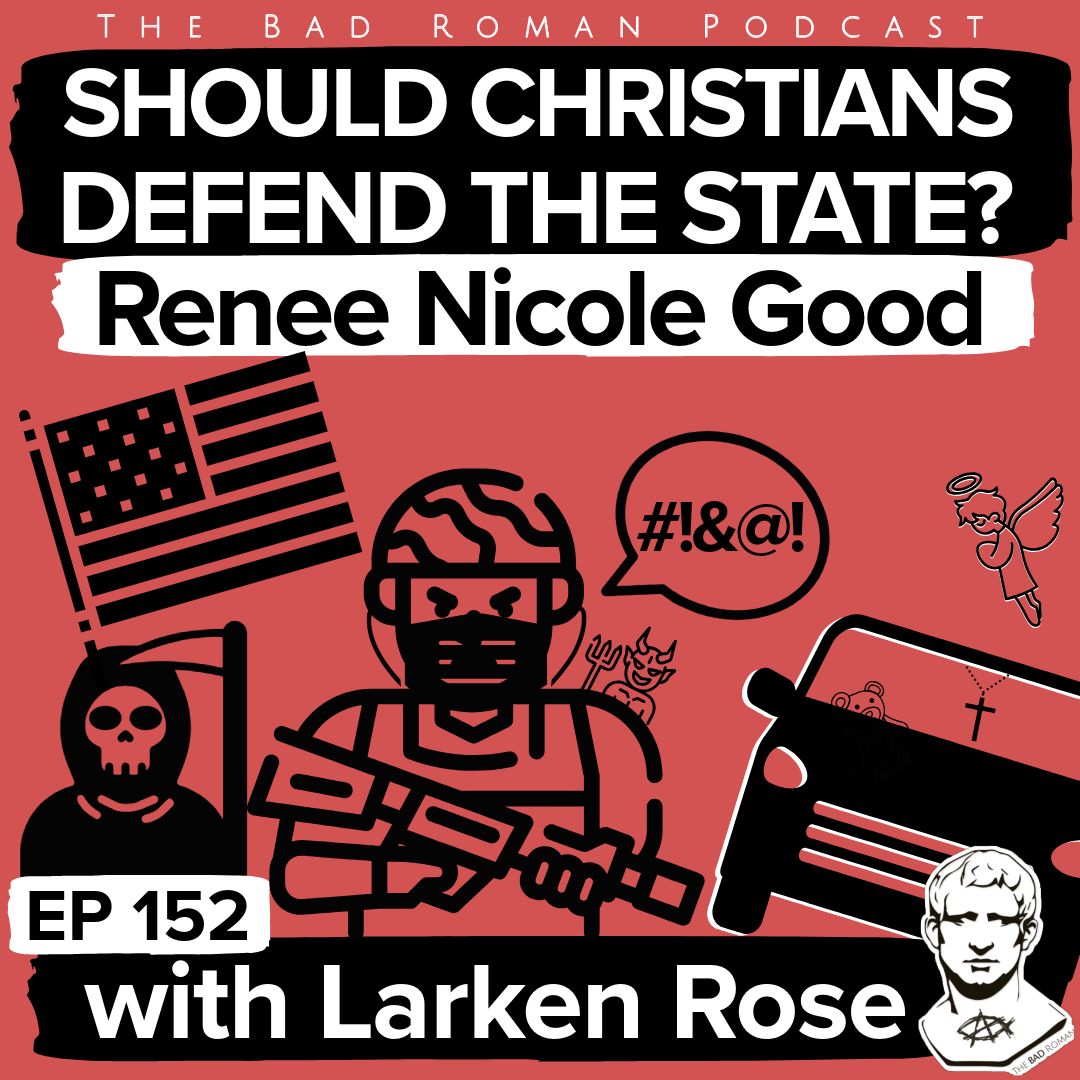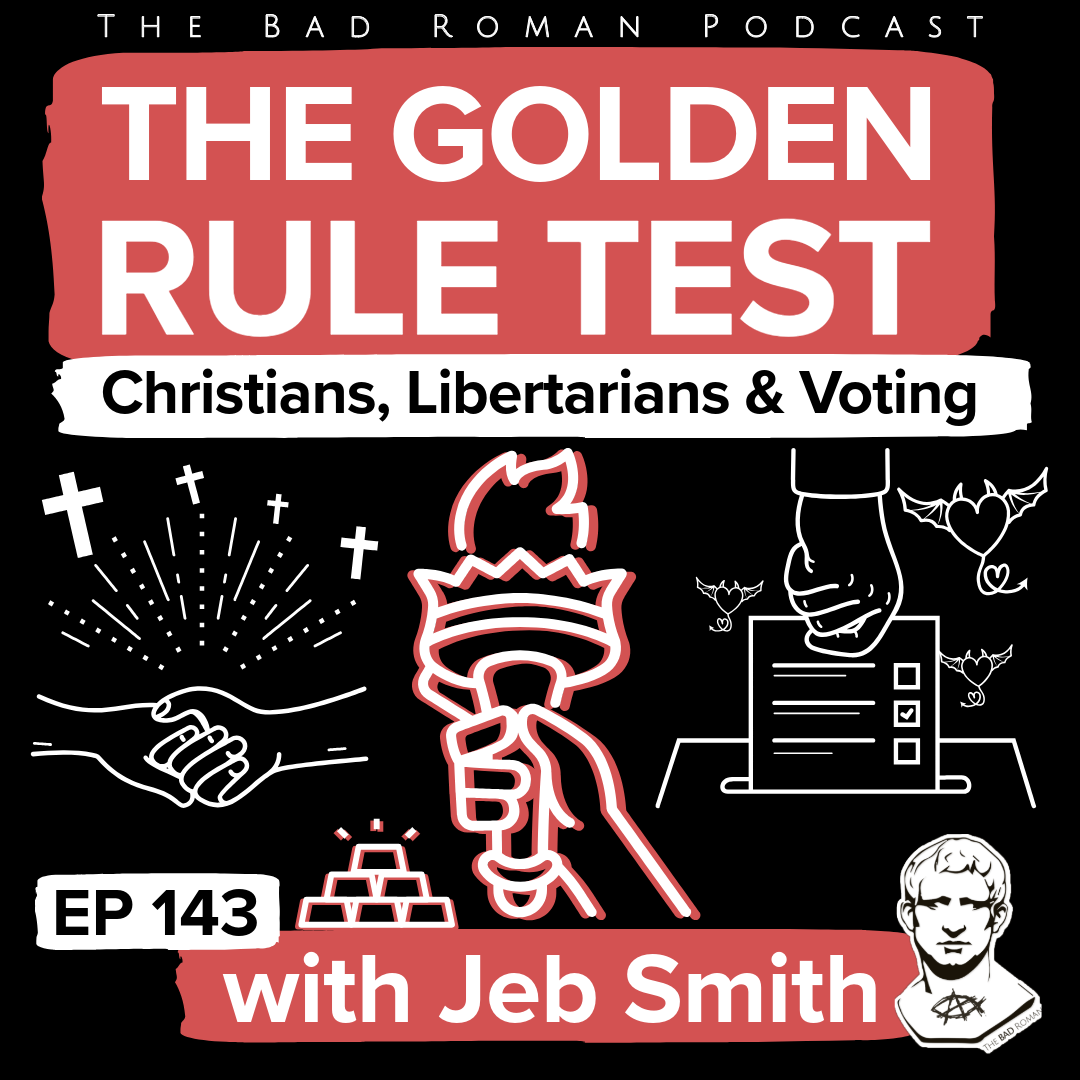What happens when immigration policies clash with Christian values? Craig sits down with Larken Rose to dissect the complexities of immigration, focusing on the criticisms of past and current policies across administrations, what is novel about Trump’s border approach, and the inconsistencies in how some Christians approach these issues. The conversation challenges listeners to scrutinize their beliefs and the language surrounding immigration.
Key Topics:
Demonization of Immigrants Under Trump: Larken Rose highlights how Trump's administration has intensified the demonization of immigrants, creating a category of "undesirables." He draws parallels to historical tyrants who gained power by instilling fear of a common enemy.
Libertarian Inconsistencies: The discussion shifts to Dave Smith, a libertarian figure who supports Trump's immigration policies. Larken criticizes libertarians who abandon their principles on immigration, pointing out the hypocrisy in supporting authoritarian measures while claiming to champion individual liberty.
Christian Perspectives on Immigration Laws: Christians’ support for harsh immigration policies and "Jesus would follow the law" are examined. Do such stances contradict Jesus' teachings?
Self-Reflection and Consistency: Larken concludes with a positive note on the power of self-reflection. He suggests that significant positive change could occur if well-intentioned people critically examined their beliefs for inconsistencies, rather than trying to change the minds of those with opposing views.
Notable Quotes:
"Obama and going back forever the immigration thuggery…it's not at all new. Trump didn't invent that. But what we're seeing a lot more of right now is the demonization of a whole category of people, those ‘illegals’." - Larken Rose
"One of the first things where it really dawned on me that maybe I was thinking about this differently is the fact that we're calling a person “illegal” because they crossed a border that was created by corrupt elitist." - Craig Harguess
Join Craig and Larken as they navigate these topics, and reflect on liberty, ownership, and the state control and power that can be seized amid public outrage. In the full episode, you’ll find a thought-provoking discussion that questions the status quo at the intersection of faith and immigration.
Connect with Larken:
Platforms: Available on Apple TV, Amazon Prime, Tubi, Xmou Play, The Roku Channel, PLEX
Episode Timestamps:
(0:22) Immigration and Morality
Larken Rose returns as a guest to tackle this contentious issue.
(0:51) The Current Immigration Crisis
Examination of the current immigration situation and its portrayal in the media.
Comparison of deportation statistics across different U.S. administrations.
Concerns were raised about the use of detention centers, likened to concentration camps.
Where was Auschwitz
(2:52) The "Undesirables" Narrative
Larken discusses the historical demonization of immigrants as "undesirables."
Comparison to tactics used by tyrannical regimes to gain power.
(5:57) Christian Perspectives on Immigration
Christian community's response to immigration policies.
Calls for a more compassionate, Christ-like approach to the issue.
(10:14) Trump and Authoritarian Rhetoric
Discussion of Trump's rhetoric, with comparisons to historical authoritarian figures.
The term "Mango Mussolini" is introduced as a humorous yet pointed critique.
(14:42) Humor as Resistance
The role of humor in challenging authoritarianism and political figures.
Balancing humor with the gravity of political issues.
(18:21) Biblical Insights on Authority
Reflection on how early Christians and Jesus challenged state authority.
Encouragement for Christians to consider these examples in modern contexts.
(21:07) Libertarian Views on Immigration
Critique of libertarian inconsistencies regarding immigration.
Discussion on fear-based versus principle-based decision-making.
(24:29) Fear as a Political Tool
Analysis of how fear is used to manipulate public opinion on immigration.
A call for courage and adherence to principles in the face of fear.
(29:23) Language and Labels
Examination of the term "illegal immigrant" and its implications.
A Christian perspective on the dehumanization inherent in such labels.
(38:46) Jesus and Legal Compliance
Addressing claims that Jesus would adhere to immigration laws.
Historical context of early Christianity's defiance of Roman law.
(54:45) The "Do You Lock Your Doors?" Argument
Larken challenges common pro-border control arguments.
Discussion of personal property rights versus national borders.
(59:59) The Mirror Project
Introduction to Larken's project aimed at encouraging self-reflection and consistency in beliefs.
Emphasis on examining personal values and beliefs.
(1:02:57) Closing Thoughts and Resources
Information on Larken's work, including "The Jones Plantation" film.













